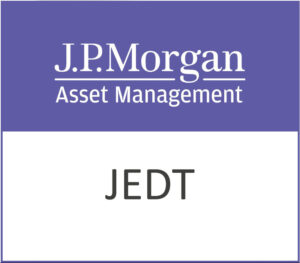Global capital is shifting, drawn by a subtle yet compelling reshuffling of risk and reward. In regions once overlooked, a trio of forces is reshaping investor strategies: disciplined policymaking, demographic vitality, and latent valuation potential. As developed markets stumble on political uncertainty and worn-out narratives, Asia’s emerging economies are asserting themselves with newfound coherence and depth.
The contrast is becoming unmistakable. While Western countries battle gridlock and unpredictability, policymakers in Southeast Asia and South Asia are demonstrating foresight and coordination. Central banks, from India to Indonesia, have not only pre‑emptively adjusted interest rates but have fortified fiscal buffers and external reserves. That strategic discipline is already being rewarded as capital seeks clarity over conjecture.
It’s not just macro stability that’s catching attention. Equity valuations across emerging Asia sit at noticeable discounts to long-term averages and to global peers. That gap offers both space and substance, rarely found in crowded developed markets. Institutional investors, wearied by inflated multiples and policy uncertainty elsewhere, are rotating into markets promising margin expansion and clarity of direction.
The data mirrors the story. Foreign inflows into local‑currency bond markets across Asia have reached levels not seen in nearly a decade, supported by a softer US dollar, tightening fiscal conditions in the West, and growing expectations for rate cuts in Asian economies. Countries such as South Korea, Malaysia, India, and Indonesia have been among the most notable recipients of this capital wave. Hedge funds, too, are re-entering the region at pace, with net bullish positioning in Asian equities touching multi‑year highs as trade conditions improve and the broader trend of de‑dollarisation gathers momentum.
The longer-term story is just as compelling. Asia’s emerging markets are supported by structural tailwinds: growing and increasingly affluent populations, rapid industrialisation, and a reconfigured global supply chain landscape. Tariff tensions have had an unintended consequence, accelerating the China‑plus‑one strategy and redirecting investment flows to Vietnam, India, Malaysia and Bangladesh. Meanwhile, nascent capital markets in Central Asia, such as Uzbekistan, are appearing on investor radars, supported by low government leverage and resilient commodity income.
Beyond short‑term capital movements, the region is gaining strategic profile in ESG‑oriented portfolios. Asian governments are issuing green and social bonds with increasing frequency, backed by credible projects and supportive policies. Institutional investors are responding, rebalancing previously under‑allocated ESG exposure in favour of these economies, drawn by both environmental alignment and portfolio diversification benefits.
That said, risks remain. Currency volatility, political cycles, and trade frictions could unsettle investor sentiment. But markets suggest these risks are being recalibrated into prices. The benign inflation environment and relatively low levels of foreign ownership in many local bond markets provide a meaningful buffer against sharp reversals, supporting the case for longer-term positioning.
This reallocation is gaining velocity as U.S. capital retreats. Recent months have seen billions flow out of U.S. equity funds and into Europe and emerging markets, underscoring a broader shift in global risk appetite. Exchange-traded funds focused on emerging economies are now receiving fresh inflows, marking a quiet but decisive pivot in portfolio construction priorities.
Asia’s emerging markets are attracting global attention through a rare alignment of structural strength, policy discipline, valuation opportunity, and escalating capital inflows. For long‑term investors, this momentum is not noise, it’s signal. In this environment, Asia’s emerging markets are more than a tactical play; they are fast becoming a portfolio imperative.
These emerging markets in Asia are countries building their economies smartly, keeping inflation in check, opening their markets responsibly, and expanding supply chains and investments. They offer investors higher yields and the chance to ride productivity leaps rather than just derivatives of developed-world speculation.
Fidelity Emerging Markets Limited (LON:FEML) is an investment trust that aims to achieve long-term capital growth from an actively managed portfolio made up primarily of securities and financial instruments providing exposure to emerging markets companies, both listed and unlisted.







































